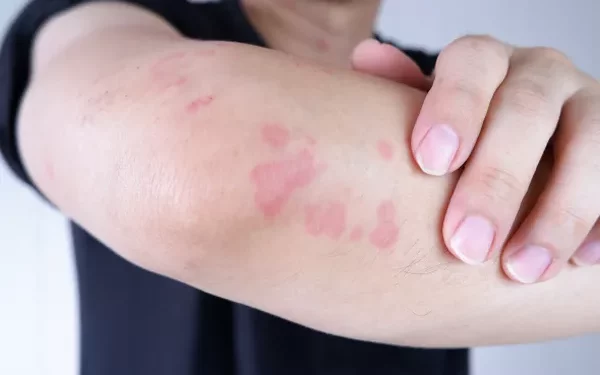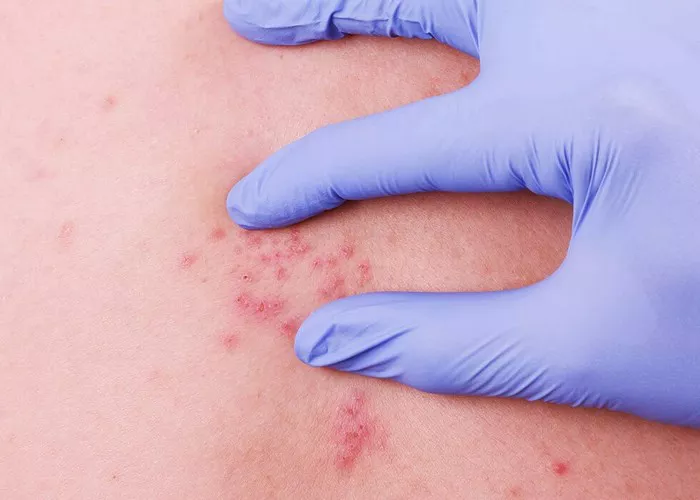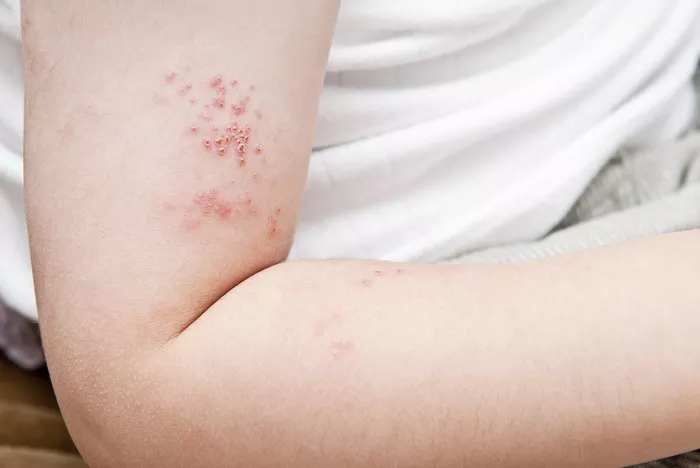Hives, medically known as urticaria, are raised, itchy welts that appear on the skin. These welts can vary in size and can appear anywhere on the body. While hives are commonly associated with allergic reactions to food, medications, or environmental factors, they can also be triggered by insect bites or stings. This article explores the various bugs that can cause hives, the mechanisms behind these reactions, and the steps one can take to prevent and treat them.
Types of Bugs That Cause Hives
Various insects can cause hives through bites or stings. The most common culprits include:
- Mosquitoes
- Bedbugs
- Fleas
- Ticks
- Bees and Wasps
- Fire Ants
Let’s delve into each of these insects and understand how they contribute to the occurrence of hives.
Mosquitoes
Mosquito bites are a common cause of hives, especially in individuals who are highly sensitive to mosquito saliva. When a mosquito bites, it injects saliva into the skin to prevent blood clotting. The body’s immune system recognizes this saliva as a foreign substance and releases histamines in response, leading to an inflammatory reaction characterized by itching, redness, and swelling.
Symptoms of Mosquito-Induced Hives:
- Red, raised welts that appear shortly after the bite
- Intense itching
- Swelling around the bite area
Bedbugs
Bedbugs are small, nocturnal insects that feed on human blood. Their bites often result in hives, particularly in individuals with heightened sensitivity. Bedbug bites typically occur in clusters or lines and can cause significant itching and discomfort.
Symptoms of Bedbug-Induced Hives:
- Clusters of red, itchy welts
- Bites often appear in a line or zigzag pattern
- Inflammation and swelling
Fleas
Fleas are tiny, wingless insects that feed on the blood of mammals and birds. Flea bites commonly cause hives, especially in individuals with allergies to flea saliva. Pets, such as dogs and cats, often harbor fleas, which can then bite humans.
Symptoms of Flea-Induced Hives:
- Small, red bumps with a halo around the bite site
- Intense itching
- Bites often occur on the lower legs and ankles
Ticks
Ticks are parasitic arachnids that attach themselves to the skin of humans and animals to feed on blood. Their bites can cause localized hives or even systemic allergic reactions in some cases. Ticks are also known to transmit diseases such as Lyme disease and Rocky Mountain spotted fever.
Symptoms of Tick-Induced Hives:
- Red, swollen area around the bite
- Itching and irritation
- In some cases, a bullseye rash indicating Lyme disease
Bees and Wasps
Bee and wasp stings are well-known triggers of hives and can lead to severe allergic reactions, including anaphylaxis. When stung, the insect injects venom into the skin, which can cause an immediate and intense allergic response.
Symptoms of Bee and Wasp-Induced Hives:
- Rapid onset of red, swollen welts
- Severe itching and pain at the sting site
- Swelling that can extend beyond the sting area
Fire Ants
Fire ants are aggressive insects that bite and then sting, injecting venom into the skin. Their stings can cause painful hives and, in some cases, more severe allergic reactions.
Symptoms of Fire Ant-Induced Hives:
- Red, itchy welts with a burning sensation
- Small blisters or pustules that form at the sting site
- Swelling and pain
Mechanisms Behind Hives Caused by Insect Bites and Stings
The development of hives in response to insect bites or stings is primarily due to the body’s immune response. Here’s how it happens:
Immune System Activation:
When an insect bites or stings, it introduces foreign substances such as saliva, venom, or other proteins into the skin. The immune system recognizes these substances as harmful and mounts a defense.
Release of Histamines:
Mast cells in the skin release histamines and other chemicals into the bloodstream. Histamines are responsible for the itching, swelling, and redness associated with hives.
Inflammatory Response:
The release of histamines leads to vasodilation (widening of blood vessels) and increased permeability of blood vessel walls, allowing fluids to leak into surrounding tissues. This results in the characteristic swelling and welts of hives.
Sensitization:
In individuals with heightened sensitivity, the immune system may overreact to even small amounts of insect saliva or venom, leading to more severe and widespread hives.
Preventing Insect Bites and Stings
Preventing insect bites and stings is crucial for reducing the risk of hives. Here are some practical tips:
Use Insect Repellents:
Apply insect repellents containing DEET, picaridin, or oil of lemon eucalyptus to exposed skin and clothing.
Wear Protective Clothing:
Long sleeves, long pants, and socks can provide a physical barrier against insect bites.
SEE ALSO: Why Are Hives Hot to the Touch?
Avoid Peak Activity Times:
Mosquitoes and other biting insects are often more active during dawn and dusk. Plan outdoor activities accordingly.
Keep Living Areas Clean:
Regularly vacuum and clean areas where pets sleep to reduce flea populations. Seal cracks and crevices to prevent bedbugs from entering your home.
Use Bed Nets:
In areas where mosquitoes are prevalent, use bed nets treated with insecticide to protect while sleeping.
Be Cautious Around Stinging Insects:
Avoid wearing strong fragrances and bright colors, which can attract bees and wasps. Be cautious when eating outdoors and keep food covered.
Inspect for Ticks:
After spending time in wooded or grassy areas, check your body and clothing for ticks. Remove ticks promptly with tweezers, grasping the tick close to the skin and pulling steadily.
Treating Hives Caused by Insect Bites and Stings
If you develop hives from insect bites or stings, several treatments can help alleviate symptoms:
Antihistamines:
Over-the-counter antihistamines such as diphenhydramine (Benadryl) or cetirizine (Zyrtec) can help reduce itching and swelling.
Topical Treatments:
Calamine lotion, hydrocortisone cream, or topical antihistamines can provide relief from itching and inflammation.
Cool Compresses:
Applying a cool, damp cloth to the affected area can help soothe itching and reduce swelling.
Avoid Scratching:
Scratching can worsen hives and lead to infection. Keep nails trimmed and consider wearing gloves at night if scratching is a problem.
Seek Medical Attention:
If you experience severe hives, difficulty breathing, swelling of the face or throat, or other signs of anaphylaxis, seek emergency medical care immediately.
Conclusion
Insect bites and stings are a common cause of hives, with various bugs contributing to this reaction through their saliva or venom. Understanding the mechanisms behind these reactions and taking preventive measures can significantly reduce the risk of hives. For those who do experience hives, appropriate treatments can help manage symptoms and provide relief. Always be vigilant about insect exposure and take steps to protect yourself, especially if you are prone to allergic reactions.
Related Topics:


























